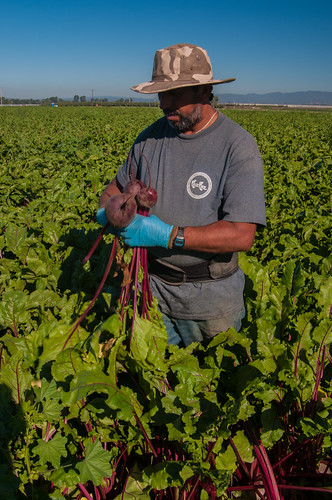In the world of organic gardening/">organic gardening, there are plenty of great resources available to both new and experienced organic gardeners alike. There are many e-guides, books, videos, and other resources available. This set of tips contains some of the best advice for helping a good organic gardener become a great organic gardener.
Maximize your time by keeping your tools close. You could do this by using a big bucket, or just wear old pants that have some deep pockets. Have gloves, shears, a trowel and anything else you need handy for quick use.
You should utilize around three inches of mulch that is organic in your flower beds. A thick layer of mulch will prevent weeds, reduce watering needs and fertilize your garden. This will also make your flowers appear beautiful and finished all year long.
Have some plastic bags on hand that you can put over your gardening shoes if they are muddy. Having these available lets you keep your flow in movement, and helps you return to your gardening fast so you can finish up your day.
Pine can be a wonderful mulch. There are many common acidic plants that prefer acidic soil. For such plants, pine needles function both as a handy mulch and as a soil amendment to lower the pH. Cover the surface of the ground with a two-inch layer of the pine needles; as the needles break down, they will release acid into the soil and nourish your plants.
Leave plenty of growing space when you plant your garden. You can underestimate how much space you need when they are growing. You need to take into account the plant’s size when it is fully grown, as well as allowing space for air circulation between each plant. If you put enough thought into your garden, you will enjoy more impressive results.
Include both green and dry plant refuse in your compost. Green means plant cuttings including grass, produce and weeds. You can add dried plants by throwing straw, shredded paper, woody materials and cardboard on your pile. Don’t throw charcoal, meat or manure into your compost.
Try using a beer trap to naturally eradicate slugs from your organic garden. Bury a jar in the garden with it’s mouth open and level to the ground. Fill that with beer just under an inch from the top of your jar. Slugs are attracted to beer. They will crawl into the jar and be trapped.
If you want to sell your crops as organic, you should look into obtaining a certification proving that you are an organic garden. This should boost your sales while proving to your customers that they are getting healthy products.
If you’d like to improve the health of your soil, try adding some mulch. Mulch can protect the ground it sits upon. It protects roots because it helps the soil stay cooler when it’s hot outside. The soil will also stay moist longer because it reduces evaporation. It also is helpful in keeping weeds under control.
One thing that sets organic gardening apart from conventional gardening is that commercial pesticides are not used. This is great for the health of your family, but you will still have to regularly check your plants for bugs and pests.
When choosing plants, dig a little deeper. If you’re buying some tomato seedlings to use in your garden, keep a look out for starts that are lush and green, but have poor root systems. Reason being, these kinds of starts stay attached to the seedlings for many weeks, which causes the seedlings to not grow until the starts are gone.
You undoubtedly have a greater understanding of all that is involved with successful organic gardening after reading this article. Take the tips you have learned here and apply them to your efforts. With this in mind, you can refine your own methods to successfully grow a beautiful organic garden.
The post Gardening Without Chemicals: Everything You Need To Know About Organic Gardening appeared first on Living Green Gardening.



















